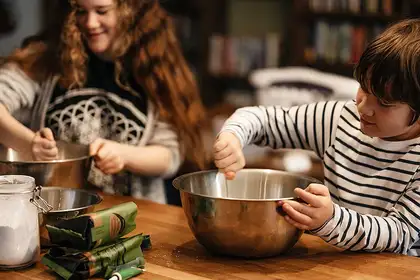
New research documents children’s accounts of the ways in which they dealt with confinement over a period of several weeks with whānau.
A new report released today by Rangahau Mātauranga o Aotearoa | NZCER and Te Kura o Te Mātauranga, Institute of Education, at Massey University shows children have a natural ability to survive, thrive and learn during COVID-19 lockdowns.
The research focussed on the national COVID-19 lockdown during school Term One and continuing in Term Two, 2020 and looked at children’s experiences of informal, everyday learning in their household bubble. In Terms Three and Four, primary school children in Years 4–8 took part in a group activity and were interviewed about their own experiences.
The report documents these children’s accounts of the ways in which they dealt with confinement over a period of several weeks with whānau.
Sue McDowall, Senior Researcher at NZCER says; “Anecdotally we know that whānau and homes provide many informal resources and supports for children’s learning. The research supported this and found that informal, everyday learning in the home during lockdown was rich and multidimensional.”
Professor Roseanna Bourke and Professor John O’Neill, from Massey’s Institute of Education say; “When we listen to children talk about their everyday worlds and the things that matter to them, we realise that they are capable and enthusiastic learners. Lockdown bubbles give children extended opportunities to connect with family and whānau and play a full part in the routines and activities of the household. We need to appreciate that lockdown is a time when children enhance their learning strengths and capabilities, rather than worry about what they may be missing out on.”
Findings from the research identified seven themes around children’s learning. Their accounts show children’s ability to adapt readily and pragmatically to the circumstances in which they find themselves and to find and create solution-focused approaches to their learning.
“We hope parents, teachers, principals, researchers, and policy makers will enjoy learning from these young people and their experiences while at home,” concluded the researchers.
Download the full report here.